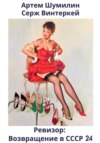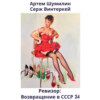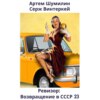Читать книгу: «The Campfire Girls of Roselawn: or, a Strange Message from the Air», страница 9
CHAPTER XXIV
A RADIO TRICK
Jessie was of course delighted to see Darry and Burd in Amy’s company when her chum appeared on the Norwood premises after breakfast. Jessie had dressed Henrietta, and the child was preening herself in the sun like a peacock. The boys scarcely recognized her.
At once Burd Alling called her the Enchanted Princess. That disturbed little Henrietta but slightly.
“I expect I am a ‘chanted princess,’” she admitted gravely. “I expect I am like Cinderella. I know all about her. And the pumpkin and rats and mice was charmed, too. I hope I won’t get charmed back again into my old clothes.”
“You could not very well help Mrs. Foley in that dress, Henrietta,” Jessie suggested.
“No. I suppose not. But if I could just find my cousin Bertha maybe I would not have to help Mrs. Foley any more. Maybe Bertha is rich, and we could hire somebody to take care of Billy Foley and to clean out the kitchen stove.”
She was more than eager to ride along with the others to look for Bertha Blair. As it chanced, Jessie did not have to call for Chapman and the Norwood car when the time to go came. For who should drive up to the house but Mark Stratford, who had come home with Darry and Burd from the yacht cruise and had driven over from Stratfordtown in his powerful car?
It was a tight fit for the six in the racing car, but they squeezed in and drove out through the Parkville road while it was still early morning. Meanwhile Darry had explained his idea to the others, and they were all eager to view the surroundings of the Gandy stock farm.
“If Bertha is there she’ll know me if I holler; of course, she will,” agreed little Henrietta. “But she never will know me by looking at me. Never!”
“So she’ll have to shut her eyes if she wants to know you, will she, kid?” chuckled Burd.
There really did not seem to be any need for the child to call when the party stopped before the closed gate, for there was not any sign of occupancy of either the house or surrounding buildings. The shingled old house offered blank windows to the road, like so many sightless eyes. There were no horses in the stables, for the windows over the box-stalls were all closed. And the tower the girls had marked before seemed deserted as well.
“Just the same, the voice spoke of the red barn and that silo and those two fallen trees there. Chapman says the trees must have fallen lately. And yet there isn’t an aerial in sight, as we told you,” said Jessie.
“Let’s look around,” Darry said, jumping out, and Burd and Amy went with him. Mark turned around in the driver’s seat to talk with Jessie.
“You know, it’s a funny thing that the girl’s name should be Bertha Blair,” the young man said. “I heard you folks talking about her before, and I said something about it to our Mr. Blair at the factory. He’s had a lot of trouble in his family. Never had any children, he and his wife, but always wanted ’em.”
“His younger brother married a girl of whom the Blair family did not approve. Guess she was all right, but came from poor kind of folks. And when the younger Blair died they lost trace of his wife and a baby girl they had. Funny thing,” added Mark. “That baby’s name was Bertha – Bertha Blair. When I told the superintendent something about your looking for such a girl because of a law case, he was much interested. If you go over there again to the sending station, tell the superintendent all about her, Miss Jessie.”
“I certainly will,” promised the Roselawn girl. “But we haven’t even found Bertha yet, and we are not sure she is here.”
Darry and the others had entered the grounds surrounding the stock farm buildings and they were gone some time. When they came back even Amy seemed despondent.
“I guess we were fooled, Jess,” she said. “There is nobody here – not even a caretaker. I guess what we heard over the radio that time was a hoax.”
“I don’t believe it!” declared Jessie. “I just feel that Bertha Blair, little Henrietta’s cousin, is somewhere here.”
“And maybe she can’t get away,” said Henrietta. “I’d like to help Bertha run away from that fat woman.”
“Let’s take the kid in and let her call,” suggested Burd.
“Sure you didn’t see any aerial, Darry?” Mark asked, showing increased interest in the matter.
“Not a sign,” said Drew, shaking his head.
“That tower–”
“Yes. It would make an ideal station. But I went all around it. I can’t see the roof, for it is practically flat. And if what I suggested was there, we will have to get above the level of the roof to see it.”
Mark suddenly got out and opened his toolbox. He brought forth a pair of lineman’s climbers.
“Thought I had ’em here. I’ll go up that telegraph pole and see what I can see,” and he began to strap them on.
“Good as gold!” cried Burd admiringly. “You have a head on you, young fellow.”
“Yes,” said Mark dryly. “I was born with it.”
He proceeded to the tall telegraph pole and swarmed quickly up it. The others waited, watching him as he surveyed the apparently deserted place from the cross-piece of the pole. By and by he came down.
“It’s there, Darry,” he said confidently. “Your big idea was all to the good. That folding wireless staff you use on the Marigold is repeated right on the top of that tower. When they use the sending set they raise the staff with the antenna and – there you have it.”
“Oh! Then she’s in the tower!” cried Amy.
“At least, she was in the tower if she sent her message from this station,” agreed Darry.
“How shall we find out – how shall we?” cried Amy, excitedly.
“If Mr. Stratford is quite sure that he sees the aerials upon that roof, then I am going to get the tower door open somehow,” declared Jessie, with her usual determination.
“It is there, Miss Jessie,” Mark assured her.
“Come on, Henrietta,” said Jessie, helping the little girl to jump down from the car. “We are going to find your Cousin Bertha if she is here.”
“You are real nice to be so int’rusted in Bertha,” said Henrietta.
“I am interested in her particularly because Daddy Norwood needs her,” admitted the older girl. “Come on now, honey. We’ll go up to that tower building and you shout for Bertha just as hard as you can shout. She will know your voice if she doesn’t know you in your new dress,” and she smiled down at the little girl clinging to her hand.
CHAPTER XXV
JUST IN TIME
It seemed as though if there really was anybody left in charge of the Gandy house and premises, such a caretaker would have appeared before this to demand of the party of young folks from Roselawn what they wanted. As Jessie Norwood walked up the lane, with little Henrietta by the hand and followed by Darrington Drew, she saw no person at any window or door.
The tower might have been abandoned years before, as far as appearance went. But Mark Stratford’s discovery seemed to make it plain that the tower was sometimes in use.
Jessie noted that the tower stood on a knoll behind the house from which vantage the race track some quarter of a mile away might be seen. With good field glasses one might stand in the second story of the tower and see the horses running on the track. Then, if there was a sending radio set in the tower, the reports of races could be broadcasted in secret code to sets tuned to the one in the tower.
Of course, if the radio instrument was so illegally used, it was only so used while the races were being held at the Harrimay Track. Then the folding aerials were raised and made use of. The cry for help that had been broadcasted and which Jessie and Amy had heard might have been sent out from this station some night when Martha Poole or her friends had neglected to shut off the aerial by dropping it flat upon the roof of the tower.
The question now was, had Bertha stolen her way into the tower at that time, or was she held prisoner there? Evidently Martha Poole and Sadie Bothwell were determined to hold the girl until after the court had settled in their favor the Ellison will case.
Jessie and those with her came to the foot of the tower. All the lower windows were boarded up and the door was tightly closed. There were shades at the upper windows, and they fitted tightly.
“You call Bertha, honey,” said Jessie. “Tell her we’ve come to let her out. Did you try that door, Darry?”
“Not much! We don’t want to be arrested for trying to commit burglary.”
“Shout for Bertha, Henrietta,” commanded Jessie.
Immediately the little girl set up a yell that, as Burd declared, could have scarcely been equaled by a steam calliope.
“Bertha! Bertha Haney! Come out and see my new dress!”
That invitation certainly delighted Amy and Burd. They sat in the car and clung to each other while they laughed. Little Henrietta’s face got rosy red while she shouted, and she was very much in earnest.
“Bertha! Bertha Haney! Don’t you hear me? I got a new dress! And we’ve come to take you home. Bertha!”
Suddenly the lower door of the tower opened a crack. An old, old woman, and not at all a pleasant looking woman, appeared at the crack.
“What you want?” she demanded. “Go ’way! Martha Poole didn’t send you here.”
Jessie spoke up briskly. “We’ve come to see Bertha. This is her little cousin. You won’t refuse to let her see Bertha, will you?”
“There ain’t nobody here but a sick girl. She ain’t to be let out. She ain’t right in her head.”
“I guess that is what is the matter with you,” said Darry Drew, sternly. He had come nearer, and now, before the woman could shut the door, he thrust his foot between it and the jamb. “We’re going to see Bertha Blair. Out of the way!”
He thrust back the door and the old woman with it. They heard a muffled voice calling from upstairs. Little Henrietta flashed by the guardian of the tower and darted upstairs.
“Bertha! Bertha! I’m coming, Bertha! I got a new dress!”
“You better go up and see what’s doing, Jess,” said Darry. “I’ll hold this woman down here.”
Jessie was giggling, although it was from nervousness.
“And I thought you did not want to be considered a burglar?” she said as she passed hastily in at the door.
“Oh, well, we’re in for it now,” Darry called after her. “Be as quick as you can.”
Jessie found a door open at the top of the flight. Henrietta was chattering at top speed somewhere ahead. The rooms were dark, but when Jessie found the room in which Henrietta was, she likewise found a girl bound to a chair in which she sat, with a towel tied across her mouth which muffled her speech.
“Here’s Bertha! Here’s Bertha!” cried Henrietta eagerly.
Jessie had the girl free and the towel off in half a minute. She saw then that the prisoner was the girl she and Amy had seen carried away by Martha Poole and Sadie Bothwell, out of Dogtown Lane.
“Oh, Miss! is this little Hennie? And have you come to take me away?” gasped Bertha.
“Surely. Are you Bertha Blair?”
“Yes, ma’am. Hennie calls me Bertha Haney. For I lived with her mom after my mother died. But my name’s Blair.”
“My father is Robert Norwood, the lawyer,” said Jessie swiftly. “He wants you to testify in court about what you heard when that old man made his will at Mrs. Poole’s house.”
“Oh! You mean Mr. Abel Ellison? A gentleman came and asked me about that once, and then Mrs. Poole said I’d got to keep my mouth shut about it or she’d put me away somewhere so that I’d never get away.”
“So I ran away from her,” said Bertha, “and tried to go to Dogtown and see Hennie and the Foleys. Why! wasn’t you one of the girls, Miss, that saw Mrs. Poole putting me into that car?”
“Yes,” sighed Jessie. “I saw it, but couldn’t stop it.”
“Well, they brought me right out here, and I’ve been here ever since. When Mrs. Poole isn’t here that old woman comes and keeps me from running away.”
“But once,” Jessie suggested, “you had a chance to try to send out a cry for help?”
“There’s a radio here. They used it one night. Then I tried to call for help over it. But they heard me and stopped it at once.”
“Just the same, that attempt of yours is what has brought us here to-day. I will tell you all about it later. Come, Bertha! We will get you away from here before Mrs. Poole comes. And we must take you to the city to see my father at once.”
As they left the tower and the ugly old woman, they heard the latter calling a number into the telephone receiver. She was probably trying to report the outrage to Mrs. Poole.
“But the woman will never dare call the police,” Darry assured Jessie. “You tell your father all about it, and he’ll know what to do.”
“And we must see Daddy Norwood as soon as possible,” the girl said. “I must take Bertha to him. The case is already in court.”
“I’ll fix that for you, Miss Jessie,” Mark Stratford said. “I can get you to town just as quickly as the traffic cops will let me – and they are all my friends.”
Darry considered that he should go, too. So they dropped Amy and little Henrietta, with Burd Alling, at Roselawn, and after a word to Momsy, started like the flight of an arrow in Mark’s powerful car for New York.
Jessie and Bertha Blair had never ridden so fast before. Mark Stratford knew his car well, and coaxed it along over the well-oiled roads of Westchester at a speed to make anybody gasp.
But haste was necessary. They knew where the court was, and they arrived there just after the noon recess. Mrs. Norwood had reached her husband’s chief clerk by telephone, and he had communicated the news to the lawyer. Mr. Norwood had dragged along the prosecution until the missing witness arrived. Then he introduced Bertha Blair into the witness chair most unexpectedly to McCracken and his clients.
If Mr. Norwood’s side of the argument needed any bolstering, this was supplied when Bertha was allowed to tell her story. The judge even advised the girl, or her guardians if she had any, that she had a perfectly good civil case against Martha Poole for imprisoning her in the tower on the Gandy farm.
These matters, however, did not interest Jessie Norwood and her friends much. They had been able to assist Mr. Norwood in an important legal case, and naturally everybody, both old and young, was interested in Bertha Blair, the girl who had been imprisoned. Momsy said she would put on her thinking cap about Bertha’s future.
Meanwhile Bertha and little Henrietta went back to the Foleys for a while. Henrietta was bound to be the most important person of her age in all of Dogtown. No other little girl there was the possessor of such finery as she had.
What Mark Stratford had said to Jessie about Superintendent Blair kept recurring to the Roselawn girl, and she felt that she should tell the man who had charge of the Stratford Electric Corporation radio program about the girl who had been rescued from the horsewoman. As we meet Jessie and Amy and Bertha and all their friends in another volume, called “The Radio Girls on the Program; Or, Singing and Reciting at the Sending Station,” in all probability Jessie Norwood will do just that.
“You girls,” Darry Drew said to Jessie and Amy, “have got more radio stuff in your heads than most fellows I know. Why, you are as good as boys at it.”
“I like that!” exclaimed his sister. “Is there anything, I’d like to know, that girls can’t beat boys at?”
“One thing,” put in Burd Alling solemnly.
“What’s that?”
“Killing snakes,” said Burd.
“Wrong! Wrong!” cried Jessie, laughing. “You ought to see little Henrietta attack a flock of snakes. She takes the palm.”
“Think of it, a little girl like that going after snakes!” murmured Burd. “She must have nerve!”
“She has,” declared Jessie. “And she is as clever as can be, too, in spite of her odd way of expressing herself.”
“I wonder what they’ll do about Bertha Blair,” came from Darry.
“She certainly had an adventure,” observed Burd. “Maybe the movie people will want her – or the vaudeville managers. They often pick up people like that, who have been in the limelight.”
“I don’t think Momsy will allow anything of that sort,” returned Jessie. “I’m sure she and Daddy will think up something better.”
Suddenly Amy, who was resting comfortably in the porch hammock, leaped to her feet.
“I declare! I forgot!” she cried.
“Forgot what?” came in a chorus from the others.
“Forgot that special concert to-day – that one to be given over the radio by that noted French soprano. You know who I mean – the one with the unpronounceable name.”
“Oh, yes!” ejaculated Jessie. “Let me see – what time was it?” She consulted her wrist watch. “I declare! it starts in five minutes.”
“Then come on and tune in. I’ve been thinking of that concert ever since it was advertised. Miss Gress, the music teacher, heard her sing in Paris and she says she’s wonderful. Come on. Will you boys come along?”
“Might as well,” answered Darry. “We haven’t anything else to do.”
“And I like a good singer,” added Burd.
In another moment all were trooping up to Jessie’s pretty room where she had her receiving set. The necessary tuning in was soon accomplished and in a minute more all were listening to a song from one of the favorite operas, rendered as only a great singer can render it. And here, for the time being we will say good-bye to the Radio Girls of Roselawn.































